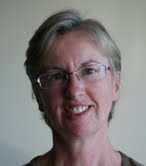On November 29th, about 2 weeks after the Paris bombings, I went to an open house at the mosque on Quadra St. All three levels were packed and the program well-prepared. The Imam spoke of the true message of the Quran and then answered several pointed but respectful and sincere questions. ISIS, he said, is killing more Muslims than non-Muslims, and is destroying the reputation of this beautiful religion. Asked if he’d ever encountered prejudice in Victoria, he replied No, in fact, just the opposite! The crowd laughed and breathed a sigh of relief.
Calgary’s Mayor, Naheed Nenshi, who was a Muslim immigrant to this country as a child, spoke of radicalization in an : “Law enforcement officers and community activists have repeatedly warned us that the cause of… radicalization is alienation and isolation.”In his 2015 speech, ,he spoke eloquently of Canada’s success in integrating immigrants by welcoming them, caring about them, and making them part of the community. It’s a skill at which this country excels, one that deserves to be recognized and celebrated.
Essential to all solutions to social problems is the need to see all humanity as one, regardless of race, class or creed. When one part of the body is ailing and in pain, we don’t seek to cut it off or further inflame it. We try to heal it, because it’s part of us.
This is in everyone’s interest. According to Richard Haass, president of the Council on Foreign Relations in the U.S., if western countries begin to block immigration because of possible terrorism, it could alienate entire communities and create even greater problems in the future.
Terrorism is correctly deemed to have no legitimate excuse. Yet there exists a story of underlying causes, a malaise spanning several generations of successive insults and humiliations, from the carving up of the Middle East to disastrous actions stemming from our lust for its oil. Without telling this truth, there can be no reconciliation. Without justice, there can be no peace.
Blaming religion may appeal to latent (and not so latent) western prejudices against Islam. But writing off an institution that contributes enormously to the social good is to smother an opportunity to examine the true causes of the process of isolation and radicalization.
The dismissive explanation that terrorists hate our freedom and are therefore attacking its symbols should make us cringe each time we hear it. It has created a sense of fear and hopelessness, as we collectively throw up our hands and say that there is nothing we can do.
The social problems that have led to radicalization haven’t materialized out of thin air. Their severity is illustrated by a few statistics. Roughly 70% of France’s prison population is Muslim, although they make up 8% of the French population. In England and Wales, where significant effort is made in the area of de-radicalization, comparable figures are 5% of the population vs. 14% of those in prison.
Caring and inclusiveness are needed to heal alienation and isolation, the rifts in the social fabric that lead to destructive behaviours. That social fabric requires constant attention. We need to protect the values that support its health – truth, justice, human rights – and allow it to protect us. “Ye must all strive with heart and soul until we have the reality of unity in our midst…” said 'Abdu'l-Bahá. This is the work we need to do.
 Sheila Flood practices the , is Secretary of the Victoria Multifaith Society, and hosts a potluck discussion on spiritual matters.
Sheila Flood practices the , is Secretary of the Victoria Multifaith Society, and hosts a potluck discussion on spiritual matters.
You can read more articles from our interfaith blog, Spiritually Speaking
* This article was published in the print edition of the Times 91ԭ�� on Saturday, January 16 2016


